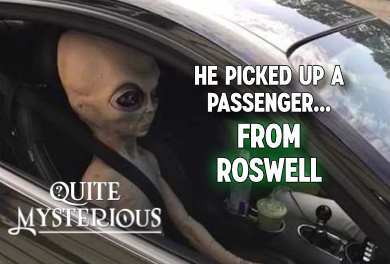Space & Astronomy
November 9, 2020 · 4 comments
4 comments

Outer space is a very hostile environment. Image Credit: NASA
One such process, which is known as panspermia, involves life from one planet being transported to another on asteroids and comets that have come into contact with an inhabited world.
Given how long it would take to carry organisms such vast distances however, it would need to be possible for them to survive in the vacuum of space for perhaps millions of years at a time.
While this might sound impossible, one particularly hardy Earth bacterium has recently demonstrated that the idea of surviving for extreme lengths of time in space may not be all that far-fetched.
Known as Deinococcus radiodurans, the bacterium - which was originally found inside a can of meat - was found to have had no trouble surviving on a special platform situated outside the space station.
Previous studies have also indicated that it can survive much longer - at least three years.
"These investigations help us to understand the mechanisms and processes through which life can exist beyond Earth, expanding our knowledge on how to survive and adapt in the hostile environment of outer space," said biochemist Tetyana Milojevic from the University of Vienna.
"The results suggest that survival of D. radiodurans in LEO (Low Earth Orbit) for a longer period is possible due to its efficient molecular response system and indicate that even longer, farther journeys are achievable for organisms with such capabilities."
Source: Live Science | Comments (4)
Bacterium survives outside ISS for entire year
By T.K. RandallNovember 9, 2020 ·
 4 comments
4 comments
Outer space is a very hostile environment. Image Credit: NASA
Scientists have identified a bacterium that seems surprisingly capable of surviving in the vacuum of space.
Scientists have long speculated over what processes might have given rise to life on other worlds.One such process, which is known as panspermia, involves life from one planet being transported to another on asteroids and comets that have come into contact with an inhabited world.
Given how long it would take to carry organisms such vast distances however, it would need to be possible for them to survive in the vacuum of space for perhaps millions of years at a time.
While this might sound impossible, one particularly hardy Earth bacterium has recently demonstrated that the idea of surviving for extreme lengths of time in space may not be all that far-fetched.
Previous studies have also indicated that it can survive much longer - at least three years.
"These investigations help us to understand the mechanisms and processes through which life can exist beyond Earth, expanding our knowledge on how to survive and adapt in the hostile environment of outer space," said biochemist Tetyana Milojevic from the University of Vienna.
"The results suggest that survival of D. radiodurans in LEO (Low Earth Orbit) for a longer period is possible due to its efficient molecular response system and indicate that even longer, farther journeys are achievable for organisms with such capabilities."
Source: Live Science | Comments (4)

The Unexplained Mysteries
Book of Weird News
AVAILABLE NOW
Take a walk on the weird side with this compilation of some of the weirdest stories ever to grace the pages of a newspaper.
Click here to learn more

Support us on Patreon
BONUS CONTENTFor less than the cost of a cup of coffee, you can gain access to a wide range of exclusive perks including our popular 'Lost Ghost Stories' series.
Click here to learn more
Extraterrestrial Life and The UFO Phenomenon
Spirituality, Religion and Beliefs
UK and Europe
Palaeontology, Archaeology and History
Total Posts: 7,745,899 Topics: 323,592 Members: 203,461
Not a member yet ? Click here to join - registration is free and only takes a moment!
Not a member yet ? Click here to join - registration is free and only takes a moment!


































Please Login or Register to post a comment.